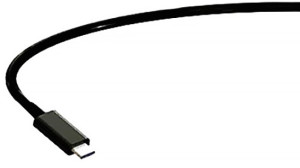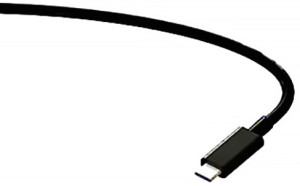 Recent commits to the Chromium source code appear to show that Chrome developers are experimenting with support for the new reversible USB spec.
Recent commits to the Chromium source code appear to show that Chrome developers are experimenting with support for the new reversible USB spec.
Better known as ‘USB Type-C’, the updated Universal Serial Bus spec features identical, symmetrical connectors at both ends to put an end to back-of-the-PC fumbling, nixing the need to double check that you have the right end facing in the right direction.
The cable connectors are around the same size as current micro-USB connectors found on smartphone and tablet charging cables, but offer more than just a less stressful way to hook up peripherals.
The spec also promises that USB C ports will up port scalable power charging up to 100 watts, and data transfers speeds double that of the current USB 3.0, up to 10 Gbps.
Coming to Chrome Devices?
Noticed by eagle-eyed Chromium enthusiasts on Google+, a recent reference to the ports references a need to update code to “fix type-C ports muxing”.
The HW signals to control the type-C ports muxing have changed between Fruitpie and Samus, update the code to match the HW.
Also add the docking mux option and update the board muxing code to prepare for the automatic mode detection : - the polarity will be determined by the PD code. - the port muxing will be enable/disable by the common alternate mode PD code.
Unless you’re a developer you’ll find the rest of the commit makes for pretty dry reading, but references for Type-C USB appear in a number of Chrome OS development boards, including ‘Fruitpie’, ‘Firefly’, ‘Ryu’ and ‘Samus’.
 Chromium developers often experiment with hardware components that do not make it into consumer hardware, and not every development board is destined to become a retail Chrome device.
Chromium developers often experiment with hardware components that do not make it into consumer hardware, and not every development board is destined to become a retail Chrome device.
While none of the code drops related to reversible USB support are proof that new Chromebooks, boxes and bases are about to arrive to save us USB fumbling frustration, the fact that they’re being played with at all is a positive sign.
